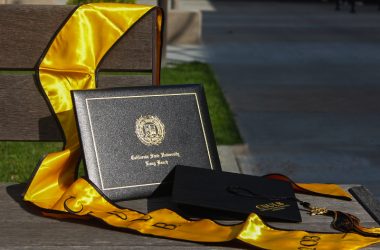Following President Barack Obama’s recent decision to swap Sergeant Bowe Bergdahl for five Taliban commanders held at Guantanamo Bay, critics have assailed his administration for violating the timeless U.S. policy of never negotiating with terrorists.
However, this case highlights the need to discard the ludicrous axiom, which is so often repeated by hypocritical public officials and readily accepted by the American public.
The axiom? “We don’t negotiate with terrorists.”
The idea that “we don’t negotiate with terrorists” is factually wrong; history is rife with countless examples of the U.S. and their allies negotiating with terrorists, and rightfully so. Echoing this point, security expert Bruce Hoffman, director of Georgetown
University’s Center for Security Studies, said that despite America’s infatuation with the axiom, it is “repeated as mantra more than fact.”
Following the Iranian hostage crisis, in which Iranian revolutionaries captured 66 American citizens, according to the History Channel, the Carter and Reagan administrations negotiated with the Iranian regime to ensure their release. Surely, negotiating for the release of U.S. captives, who were held captive for 444 days, is a worthwhile enterprise that the U.S. should periodically engage in, as it did during the Iranian hostage crisis and in the recent case of Bergdahl.
The Reagan administration again negotiated with Iran, even after the 1983 Beirut barracks bombing against U.S. marines, which killed 241 Americans, according to CNN.
Anyone who wasn’t asleep in high school U.S. history class remembers the Iran-Contra affair. In the 1980s, the Reagan administration negotiated with Iran, which was a persistent state-sponsor of terrorism both then and now, in order to secure the release of American hostages being held in Lebanon by Iran’s terrorist buddies, Hezbollah.
President Reagan, the same president who introduced the “we don’t negotiate with terrorists” mantra into the public forum, according to The Daily Beast, provided Iran with over 2,000 TOW anti-tank missiles and Hawk anti-aircraft missiles. To make matters worse, senior officials in his administration secretly used the proceeds from the weapons sales to arm the right-wing guerilla forces known as the Contras in Nicaragua, who were guilty of egregious human rights violations.
During the course of their guerilla activities, the Contras tortured and executed civilians, raped women and indiscriminately attacked civilians, according to the Human Rights Watch website.
Despite periodic, violent clashes with Hamas, a group that is classified by Israel, the U.S. and the European Union as a terrorist organization, Israel has negotiated directly with their leaders in the past. For example, Israel agreed to release 1,027 prisoners in
order to secure the release of the captured soldier Gilad Shalit in 2011, according to ForeignPolicy.com. By Israeli standards, the Bergdahl deal was a no-brainer.
According to ForeignPolicy.com, various hostage-taking entities in Iraq raked in approximately $46.5 million during the course of Operation Iraqi Freedom as a result of negotiations with the Bush administration. In Afghanistan, terrorist groups have netted
$20.6 million from hostage negotiations. Between the years of 2011 and 2012 alone, irates off the Somali coast collected more than $190 million from the U.S. and other countries.
Clearly, the statement made by Rep. Mike Rogers (R-MI), chairman of the House Intelligence Committee, wherein he suggested that this deal ends the chapter in American history where we don’t negotiate with terrorists, is entirely false.
On the surface level, it appears sensible that we should not provide concessions to terrorist organizations or engage in dialogue with their leaders. The argument in support of this hawkish position generally holds that democracies should not give in to violence;
doing so will merely legitimize terrorists and incentivize the use of barbaric methods to undermine global stability.
However, this position neglects the fact that negotiating with terrorists can allow us to achieve highly valued goals, such as the release of hostages or military personnel. The primary argument being levied against the Obama administration for the Bergdahl swap, namely that “we don’t negotiate with terrorists,” is plainly false. America has always engaged in dialogue with terrorists, and rightfully so.




From what I see the author is a bit off base – the main issue is not the negotiation itself as the author correctly states has occurred in the past, but the value for value of the swap itself. Do the math.
Semper mementote